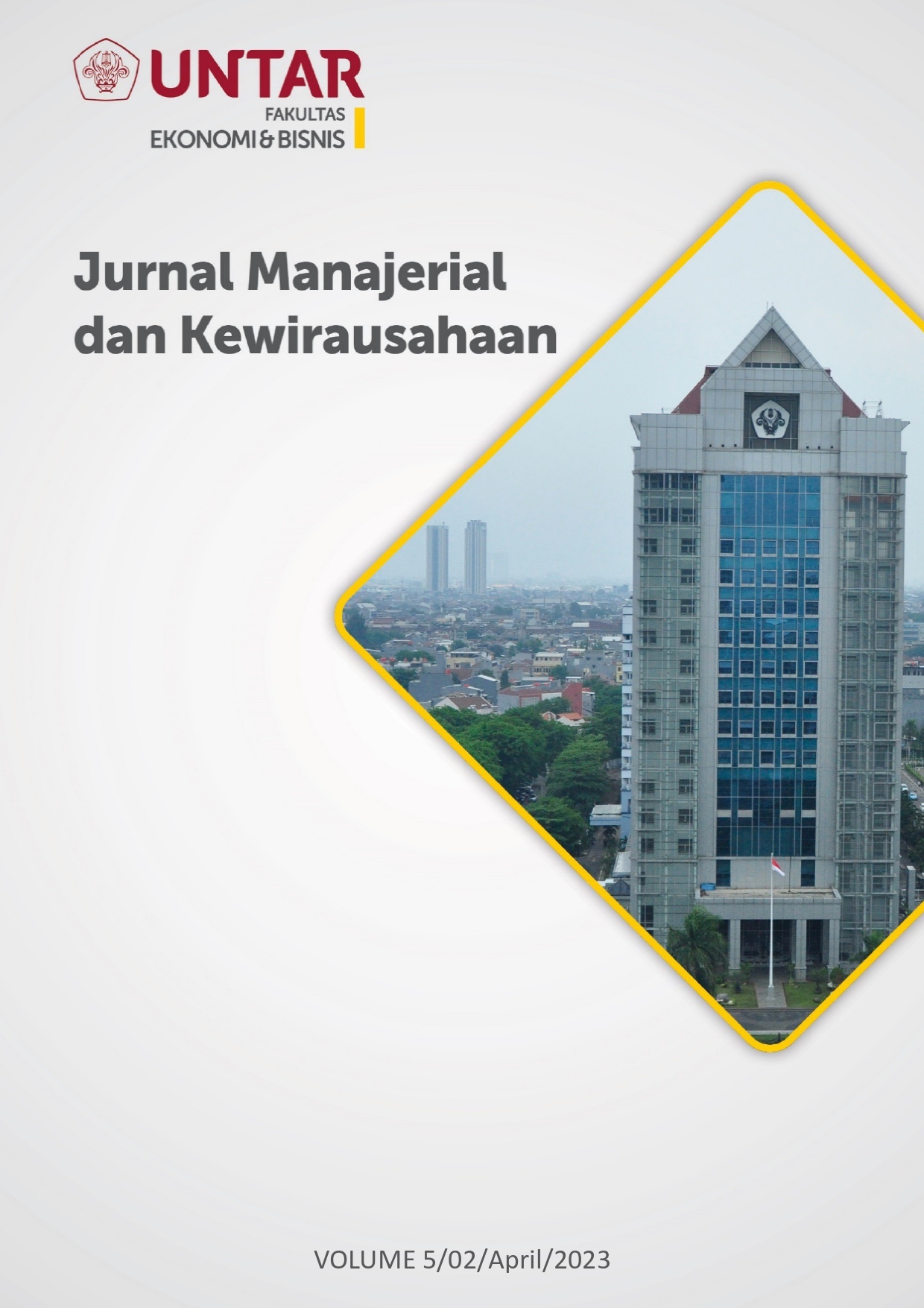Pengaruh Financial Literacy, Financial Attitude, dan Self Control terhadap Saving Behavior
Main Article Content
Abstract
This study aims to determine whether there is an effect of 1) financial literacy on saving behavior 2) financial attitude on saving behavior 3) self control on saving behavior. The number of samples in this study were 232 respondents from the millennial generation and domiciled in Kepulauan Riau and data collected online through a questionnaire via google-form. The sample selection technique is uses convenience sampling technique and processed using PLS-SEM which is calculated through the SmartPLS software version 3.3.3. The hypothesis test result show that there is a positive effect of financial literacy on saving behavior there is a positive effect of financial attitude on saving behavior, and there is a positive effect of self control on saving behavior.
Article Details
Section

This work is licensed under a Creative Commons Attribution-NonCommercial-ShareAlike 4.0 International License.
This work is licensed under a Jurnal Muara Ilmu Ekonomi dan Bisnis Creative Commons Attribution-ShareAlike 4.0 International License.,/p>
References
Amalia. (2010). Hubungan antara Komunikasi Orang Tua-Anak mengenai Seksualitas dan Kontrol Diri dengan Perilaku Seks Pranikah. Skripsi Program S1 Fakultas Psikologi Universitas Islam Negri (UIN) MaulanaMalik Ibrahim Malang.
Angela, G. & Pamungkas, A. S. (2021). The Influence of Financial Literacy, Parental Socialization, Peer Influence and Self-Control on Saving Behavior. in Proceedings of the tenth International Conference on Entrepreneurship and Business Management 2021, 560-566. https://doi.org/10.2991/aebmr.k.220501.085
Bank Indonesia. (2021). Laporan Perekonomian Provinsi DKI Jakarta Mei 2021. (Retrieved from : https://www.bi.go.id/id
Bank Indonesia. (2022). Laporan Perekonomian Provinsi Kepulauan Riau. (Retrieved from : https://www.bi.go.id/id
Baumeister, R, F. (2002), “Yielding to Temptation: Self-Control Failure, Impulsive Purchasing, and Consumer Behavior,” Journal of Consumer Research, 28 (March), 670–76.
Chowa, G. A., Despard, M., & Osei-Akoto, I. (2012). Financial Knowledge and Attitudes of Youth in Ghana. YouthSave Research Brief. https://doi.org/10.7936/K7668CQ5
Fitri., Sarnawiah., & Narto, Otoluwa. (2020). Development And Validation Of Student’s Financial Attitude Instruments. Jurnal Ilmiah MEA (Manajemen, Ekonomi, & Akuntansi) 4 (3), 1516-23. https://doi.org/10.31955/mea.v4i3.637
Haderi, S. A. L., Ishak, K. A., Ismail, W., Sanabani, T. A. L., & Hamdani, A. A. L. (2018). Self-Control and Social Pressure an Important Determinant on The Saving Behaviour Among University’ Students. International Journal of Engineering and Technology(UAE), 7(4), 462–469. https://doi.org/10.14419/ijet.v7i4.28.22632
Hilbert, M.A., Hogarth, J.M., & Beverly S.B. (2003). Household Financial Management: The Connection between Knowledge and Behavior. Federal Reserve Bulletin, pp. 309–322.
Ismail, S., Khairuddin, N. S., Alias, N. E., Loon-Koe, W., & Othman, R. (2018). An Empirical Analysis of Saving Behavior among Malaysian Employees. International Journal of Academic Research in Business and Social Sciences, 8(10), 1070–1080.
Remund, D. L. (2010).Financial literacy explicated: The case for a clear definition in an increasingly complex economy. The Journal of Consumer Affairs. https://doi.org/10.1111/j.1745-6606.2010.01169.x
Sekaran, U., & Bougie, R. (2016). Research Methods for Business : A Skill Building Approach (7 ed). United Kingdom: Wiley.
Sirine, H., & Utami, D. S. (2016). Faktor-Faktor yang Memengaruhi Perilaku Menabung di Kalangan Mahasiswa. Jurnal Ekonomi Dan Bisnis, XIX(1), 27–52
Suhendra., & Arifin. (2019). Faktor Yang Memprediksi Perilaku Menabung Pekerja Di Jakarta. Jurnal Manajerial dan Kewirausahaan, Volume I No. 3/2019 Hal: 600-608
Tangney, J.P., Baumeister, R, F., Boone, F.L. (2004). High Self Control Predicts Good Adjusment, Less Pathology, Better Grades, and Interpersonal Success. Journal Of Personality, 72 (2), 271-324.
Thung, Chai Ming, dkk. 2012. Determinants of Saving Behavior Among The University Students in Malaysia. RM1P T1G3
Raszad, S. E. F. & Purwanto, E. (2021). Faktor-Faktor Yang Mempengaruhi Perilaku Menabung (Studi Pada Mahasiswa Perguruan Tinggi Negeri Di Kota Surabaya. Jurnal Ilmiah Manajemen Ubhara, 3(20), 51-65.

